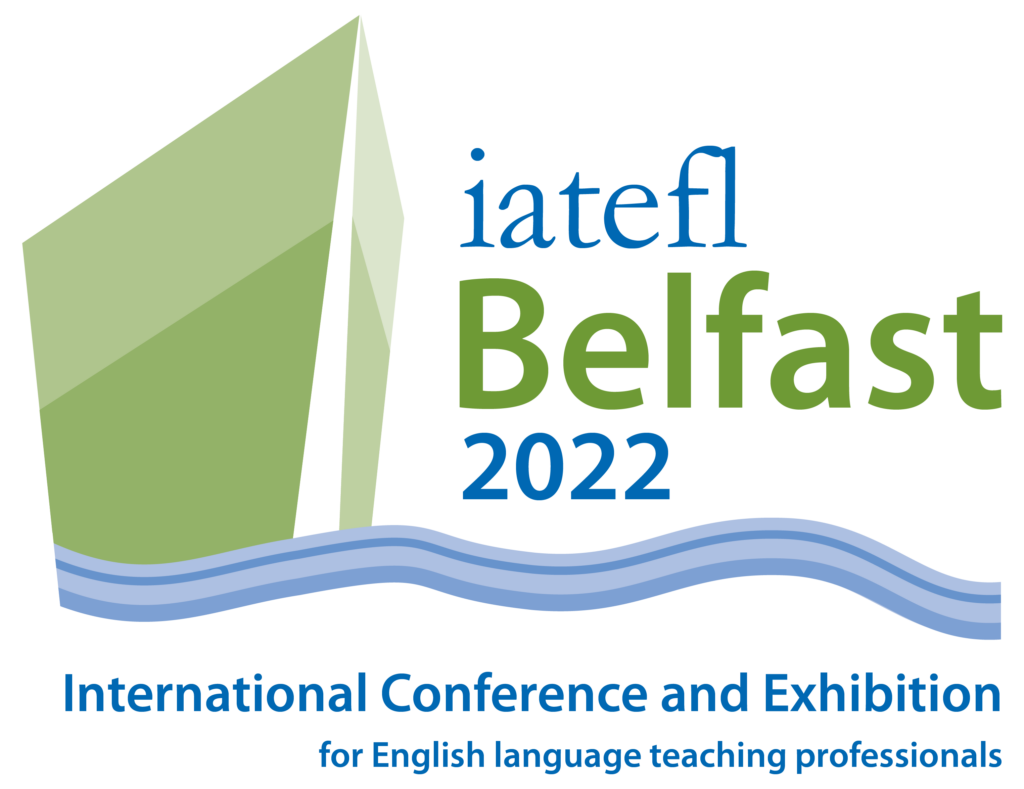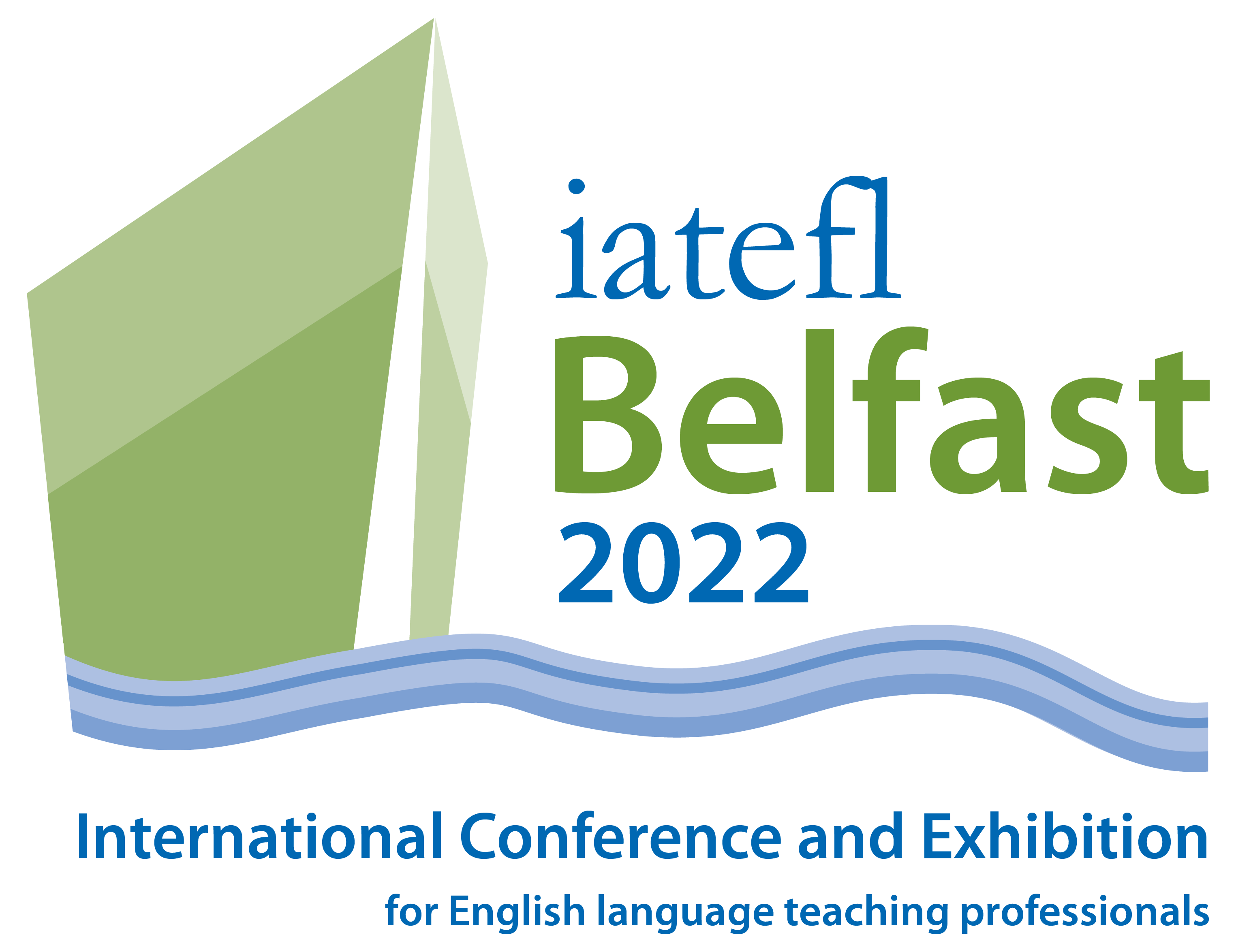
 It’s certainly been a challenging time over the last two years as we’ve tried to organise our annual international conference! As you will remember, we took the difficult decision to defer the conference planned for 2020 in Manchester, and finally ended up running it online last June. We were delighted with the positive response from delegates who attended, and it fit in well with the huge increase in online webinars, courses and events IATEFL ran in 2021, over 150! The association had already been offering online events for many years previously, but it’s clear that they firmly have a strong place in our range of activities moving forward.
It’s certainly been a challenging time over the last two years as we’ve tried to organise our annual international conference! As you will remember, we took the difficult decision to defer the conference planned for 2020 in Manchester, and finally ended up running it online last June. We were delighted with the positive response from delegates who attended, and it fit in well with the huge increase in online webinars, courses and events IATEFL ran in 2021, over 150! The association had already been offering online events for many years previously, but it’s clear that they firmly have a strong place in our range of activities moving forward.
So why not have another virtual conference?
Whilst the virtual conference last year received very positive feedback, in delegate feedback the most popular option was, however, to return to having a face-to-face conference where delegates can meet up with friends and colleagues, discuss issues over a coffee, and enjoy being part of a physical community.
With this in mind we pushed the conference back to May this year, much later than our usual March or April slot and past any winter surge which might happen, in the hope that we would be passed the worst of the pandemic by then, that global vaccination programmes will have made much greater progress, that the warmer weather would enable people to be outside more if they wished, and that we could mitigate for any on-going risks with a range of measures to protect delegates.
As a result, IATEFL is busy planning for a safe, enjoyable and valuable face-to-face conference experience. We have completed our scholarship applications process, our call for proposals, announced our plenary speakers, informed successful speakers, and will soon be launching our conference preview.
How will we make sure the conference will be as safe as possible for attendees?
Our venue, the ICC in Belfast, has undertaken comprehensive risk assessments to mitigate against the transmission of COVID-19. At present, this includes all attendees wearing face coverings, engaging in sensible distancing in communal areas, and observing the signage, hand hygiene and general COVID-19 messaging around the venue. The ICC Belfast has been awarded the ‘We’re good to go’ mark, an industry standard demonstrating their commitment to implementing relevant government and public health guidance in relation to COVID-19. The venue has enhanced cleaning and sanitising procedures in place, and only fresh air which is heated or cooled as required by the air handling units instead of recycled air through ventilation systems.
Of course IATEFL will be playing its part too, making sure everything is as safe and sanitised as we can. And we’ll also be providing guidance for our delegates before the conference, on what they can do to play their part too.
Safety measures will only be relaxed further before May if the venue and the Northern Irish Government feel it is safe to do so. The measures are there to protect all conference attendees, as well as reassuring them.
What about a hybrid conference?
Many people have asked if we plan to go hybrid for the Belfast conference. While we are really keen to explore this option, at the present time there are a number challenges we feel need to be resolved to ensure that any offer of a hybrid conference does not lead to a dissatisfying experience for all.
We know from members that they crave a face to face event, so how will people feel if the audience of IATEFL 2022 is split? Would online participants truly feel part of IATEFL 2022 or simply a distant spectator knowing that at heart they are missing the full experience the conference brings? After two years without the face to face event we want Belfast to be the place that the ELT profession meets each other again. If we went hybrid would the face to face audience feel they are missing out on the full experience of communicating, networking and exchanging ideas and opinions with fellow delegates? How will a presenter feel presenting to ‘two’ audiences? There could, for example, be just one or two people in a room and hundreds of others online. Preparing a talk for conference is often a big enough challenge without having to worry about how to make a session that is both physically and virtually interactive and collaborative.
The IATEFL conference is not just about talks, there is also the social side, and while our online conference in 2021 did a great job of bringing a feel of them to you via our platform, part of their success was that we were all joining in the same way. Furthermore, an IATEFL conference is also about discovering all that’s new in the world of English language teaching in our exhibition and being able to ask questions of the publishers, course providers, exam boards and others who are there.
The success of our conference is in the detail of our planning, last year we did copious amounts of research, trials and testing before we were confident that we could offer the conference online. While there is no doubt that a hybrid conference presents all sorts of opportunities for IATEFL, at the moment we are still grappling with the challenges that a hybrid event will bring and trying to find solutions that will create a satisfying experience for all involved and more importantly will not make the conference more costly for delegates. 
Where we are now?
The IATEFL Conference Committee and Head Office team will continue to monitor the situation regarding the pandemic and all associated guidance. We will continue to liaise with all of our partners, including the venue, to ensure we have done everything we need to. And we will continue to plan for a face-to-face conference and exhibition in Belfast, our 55th international conference. We are equally planning a range of contingencies in the case of any further challenges, but hope these will not be necessary as the world continues to combat COVID.
Unfortunately we aren’t able to confirm exactly what the situation will be, and what travel restrictions might be in place, or not, from all countries around the world at this point. Whilst it’s true that international travel restrictions for people travelling to the United Kingdom have been greatly relaxed recently, we’re simply too far away from May at the moment to understand what the situation will be like throughout the world. However the moment there is an update, we will share it with you as soon as possible. We’re hoping things will move in a positive direction in the weeks to come.
What can you do?
We would always advise delegates to take out appropriate travel insurance to protect themselves, understand any travel restrictions which may be imposed on them if they travel (as it stands there should be none for entry into the United Kingdom for those vaccinated, but you should always confirm this for your own circumstances), and make sure their travel tickets are refundable in the case that you are unable to attend. Most travel companies have such policies in place now. We would encourage everyone to get vaccinated if and when they are able to, and continue to take the practical steps we all know in order to remain safe.
Equally we’d like to invite you to finally step away from your screen, stop staring at your webcam, and come and join us in Belfast if you are able to. We know so many of you are looking forward to seeing each other, and we’re looking forward to seeing you too. Whilst the association will continue to provide a wide range of online courses, webinars and events, as well as publications, throughout the year, our intention is also to provide you with an annual opportunity to meet up in person at our international conference. This year’s will be from 17th to 20th May in Belfast, with Pre-Conference Events offered by our Special Interest Groups on the 16th. We hope to see you there!
[VIDEO::https://www.youtube.com/watch?v=KvWBq_mIlSQ]














